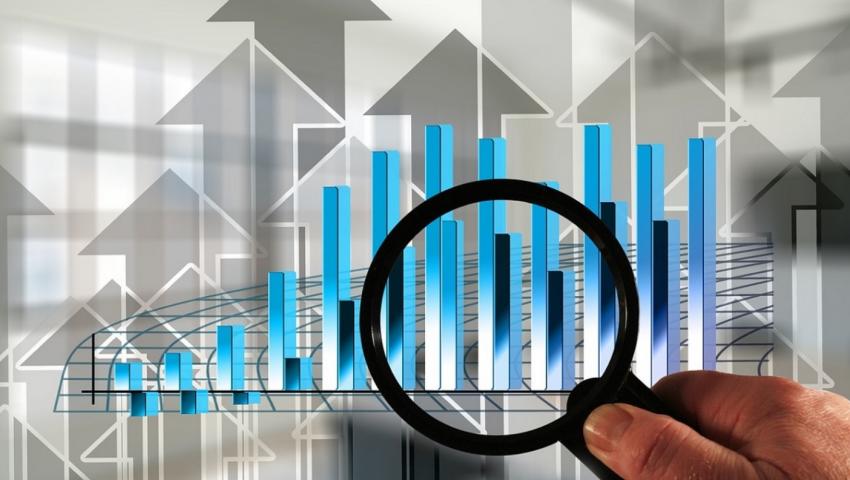2023 Edelman Trust Barometer Reveals Business is the Only Institution Viewed as Ethical and Competent
Economic Optimism Suffers a Massive Collapse Globally

Source: 3eNews, archive, Pixabay
The 2023 Edelman Trust Barometer reveals that business is now viewed as the only global institution to be both competent and ethical. Business now holds a staggering 53-point lead over government in competence and is 30 points ahead on ethics. Its treatment of workers during the pandemic and return to work, along with the swift and decisive action of over 1,000 businesses to exit Russia after its invasion of Ukraine helped fuel a 20-point jump on ethics over the past three years. Business (62 percent) remains the most and only trusted institution globally.
“The increased perception of business as ethical brings with it higher than ever expectations of CEOs to be a leading voice on societal issues,” said Richard Edelman, CEO of Edelman. “By a six-to-one margin, on average, respondents want more societal involvement by business on issues such as climate change, economic inequality, and workforce reskilling. But business must tread carefully, more than half (52 percent) of our respondents do not believe business can avoid being politicized when it addresses contentious societal issues.”
This year’s report finds that economic optimism has collapsed globally (50 percent to 40 percent), with half of the countries surveyed showing a year-over-year double-digit decline in the belief that their families will be better off in five years’ time. Further, not one developed nation has over 36 percent of its people confident that their family will be better off in five years, and 24 of the 28 countries surveyed dropped to all-time lows in optimism including the U.S. (36 percent), the UK (23 percent), Germany (15 percent) and Japan (9 percent).
This has occurred alongside a metastasizing of the mass-class divide; there is now a double-digit trust gap in three quarters of the countries surveyed where those with a high-income are more trusting, on average, of societal institutions than low-income respondents. High-income earners' average trust in institutions has soared from 50 to 62 since 2012, while low-income earners have struggled, with the trust index rising only slightly from 43 to 48. The most notable developments in income-based trust inequalities since 2021 have been in China (from a 4-point divide to 19-points) and the UAE (from 10-points to 19-points). The U.S. (23-point gap) and Thailand (37-point gap) demonstrate the largest divides in 2023.
The Trust Barometer deems nearly one quarter of the countries surveyed as severely polarized, including the U.S., Colombia, Argentina, South Africa, Sweden and Spain. When divisions become entrenched, polarization ensues, and respondents believe their differences can no longer be overcome. Globally, nearly two thirds observe an unprecedented lack of civility and mutual respect in society. This observed lack of civility coincides with ideology becoming identity: among those who feel strongly about an issue, less than one third of respondents say they would help (30 percent), live near (20 percent) or work with (20 percent) someone who strongly disagrees with their point of view.
“We are in a period of huge systemic change in a multi-polar world, with divisive forces fanning economic grievance,” said Dave Samson, Global Vice Chairman Corporate Affairs. “If neglected, the result will be increased levels of polarization, slowing economic growth, deeper discrimination, and an inherent inability to solve problems. CEOs, and the companies they lead, must play a central role in addressing these issues and in helping restore economic optimism.”
Other key findings from the 2023 Edelman Trust Barometer include:
Personal economic fears such as job loss (89 percent) and inflation (74 percent) are on par with urgent societal fears like climate change (76 percent), nuclear war (72 percent) and food shortages (67 percent).
CEOs are expected to use resources to hold divisive forces accountable:
72 percent believe CEOs are obligated to defend facts and expose questionable science being used to justify bad social policy;
71 percent believe CEOs are obligated to pull advertising money out of media platforms that spread misinformation;
and 64 percent, on average, say companies can help increase civility and strengthen the social fabric by supporting politicians and media outlets that build consensus and cooperation.
Government (51 percent) is now distrusted in 16 of the 28 countries surveyed including the U.S. (42 percent), the UK (37 percent), Japan (33 percent), and Argentina (20 percent). Media (50 percent) is distrusted in 15 of 28 countries including Germany (47 percent), the U.S. (43 percent), Australia (38 percent), and South Korea (27 percent). ‘My employer’ (77 percent) is the most trusted institution and is trusted in every country surveyed aside from South Korea (54 percent).
Government leaders (41 percent), journalists (47 percent) and CEOs (48 percent) are the least trusted institutional leaders. Scientists (76 percent), my coworkers (73 percent among employees) and my CEO (64 percent among employees) are most trusted.
Technology (75 percent) was once again the most trusted sector trailed by education (71 percent), food & beverage (71 percent) and healthcare (70 percent). Social media (44 percent) remained the least trusted sector.
Canada (67 percent) and Germany (63 percent) remained the two most trusted foreign brands, followed by Japan (61 percent) and the UK (59 percent). India (34 percent) and China (32 percent) remain the least trusted.
The 2023 Edelman Trust Barometer is the firm’s 23rd annual trust and credibility survey. The research was produced by the Edelman Trust Institute and consisted of 30-minute online interviews conducted between November 1 and November 28, 2022. The 2023 Edelman Trust Barometer online survey sampled more than 32,000 respondents across 28 countries.
Published every January, the report covers a range of timely and important societal indicators of trust among business, media, government and NGOs, shaping conversation and setting the agenda for the year ahead.
